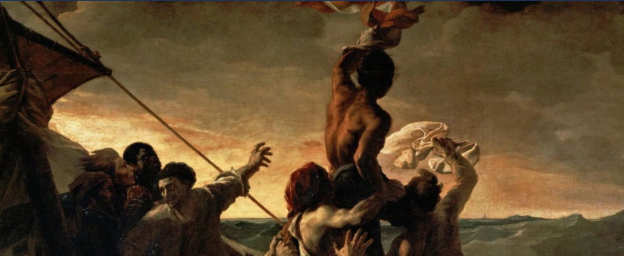Summary
Life is full of troubles and distress. These troubles and distresses can come from circumstances in life (health, life transitions, death of loved ones) or from the attacks of others on us. King David was no stranger to the troubles and distresses of life, both in his youth and in his days as King of Israel.
Psalm 4 is a song written in a time of distress, possibly similar in circumstances to Psalm 3. Psalm 4 expresses confidence in God, in whom we may find peace in times of distress. After a brief prayer to God to hear his call, David describes his enemies and calls them to repentance, and then closes with a confident prayer in God’s protection and peace.
Our passage explained
v1-5
In the first verse of Psalm 4, David calls out to God asking him to hear his prayers. “Answer me when I call, O God of my righteousness!” David asks his covenant-keeping God to hear his prayers, recognising that it is God who gives him his righteousness, not his own deeds. God has previously “given me relief when I was in distress” so David desires God to hear his prayer now: not because God is required to, but out of his graciousness.
In verses 2 through 5, David then describes his enemies who are causing his present distress and calls them to repent. In verse 2, he accuses them of worshipping false gods. He asks “how long shall my honour be turned into shame?”, a polite reference to exchanging God (“my honour/glory”) for idols (cf. Ps. 106:20, Romans 1:21-23). As a result they “love vain words and seek after lies.”
In contrast to David’s enemies, who have sought after false gods, the godly are set apart by God. His enemies should know that “the Lord has set apart the godly for himself” (v.3) and that “the Lord hears when I [David] call to him.” God has reserved those who seek him as his own possession, and listens when they cry out in prayer to him. God keeps his covenant promises with all who seek him.
David then calls on his enemies to repent of their wickedness and turn to God. They ought to “be angry, and do not sin” (v.4, cf. Eph 4:26), turning away from their anger and instead coming in trembling fear before God. He tells them to “ponder in your own hearts on your beds, and be silent”. They should reflect on their ways in the evening. Like the righteous, knowing the evil in their hearts, they should “offer right sacrifices, and put [their] trust in the LORD” (v.5).
v6-8
Finally, David returns with a confident prayer in God’s protection and peace. In verse 6 he relates the words of (presumably) sceptics, who say “Who will show us some good?
Lift up the light of your face upon us, O LORD!” The sceptics mock and using phrasing from the Aaronic blessing (Numbers 6:24-26) suggest that God has not blessed them materially with prosperity, perhaps suggesting that they consider worshipping God as conditional on him blessing them.
Unlike the sceptics who view God’s blessings only in terms of material wealth, David sees God’s blessing differently. “You have put more joy in my heart than they have when their grain and wine abound” (v.7). God provides joy even in the midst of trouble and distress, which is far greater than the occasional blessing of food and drink at harvest festivals.
The joy which David has received means “In peace I will both lie down and sleep; for you alone, O Lord, make me dwell in safety” (v.8). Peaceful sleep comes to David because he knows God is his protector, who watches over him and gives him joy even in the middle of difficult days.
Our passage applied
So how do we find peace in times of trouble and distress? The answer, according to this Psalm, is to put our trust in God. Like David and “the godly,” all those who worship God and not false idols are set apart by God as his possession.
As David calls his enemies to do, so too should we meditate on the evil in our hearts and seek forgiveness from God through Jesus’ sacrifice. To know God’s love and his comfort, we should come trembling before the holy God, worshipping and trusting him, and receiving his faithful mercy.
Because God is faithful, he gives joy in the midst of sorrow to all his children, better than the joy we experience in days of celebration (eg, weddings, Christmas, and such). This joy, knowing his love and ability to protect us (Jude 24) is a comfort that should help us sleep at night. It assures us of our eternal safety, even in times of distress. God’s joy helps us carry on, even when all seems lost.
In times of trouble and distress, like David we should cry out to God. Come to God in prayer, trusting in his mercy and goodness, and receive from God the joy in your heart that is better than feasting.
Resources
Questions? Please contact us. Inspired? Come and worship with us on Sundays.











